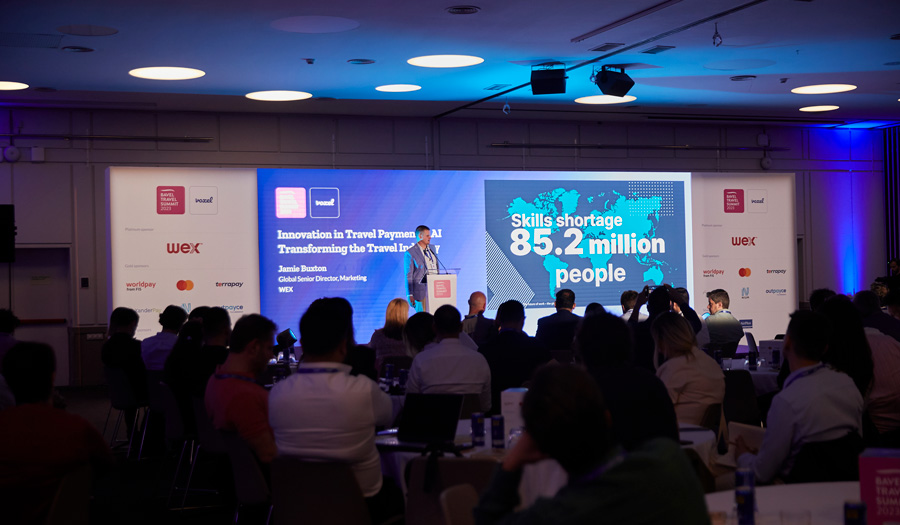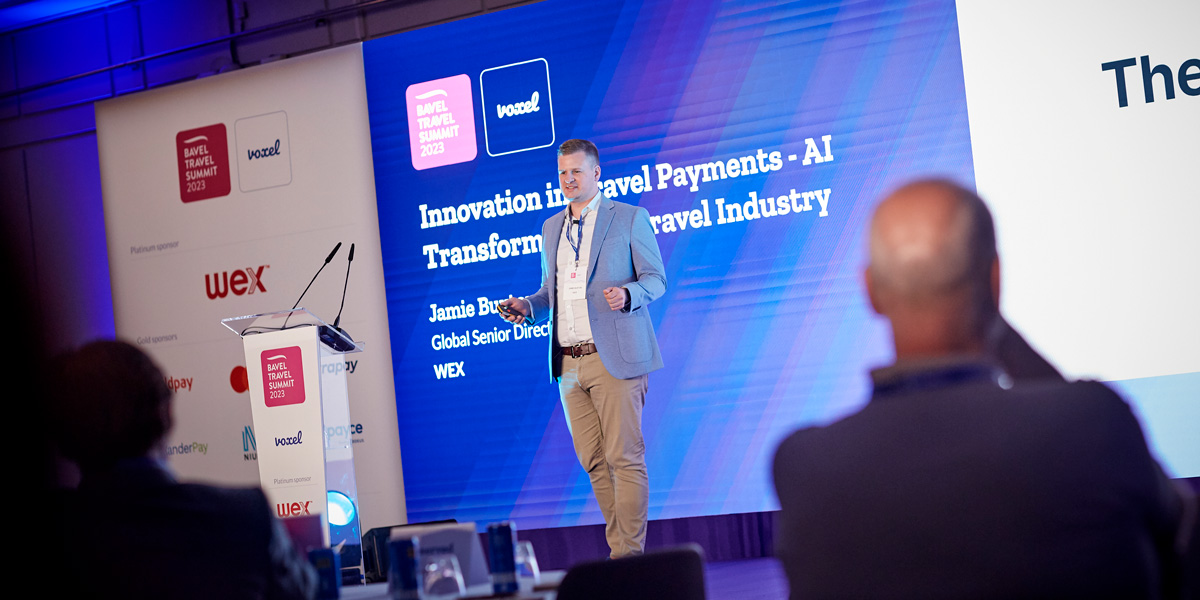Artificial intelligence (AI) is already revolutionizing the travel sector with improved and personalized locations and experiences for customers. In this context, companies that use tools based on AI and data processing technology will be capable of becoming leaders in the sector. Thus, middle-income segment travel companies have the opportunity of becoming more competitive against luxury travel companies.
This was stated by Jamie Buxton, Marketing Global Senior Director of the corporate payment solutions supplier company WEX, while participating in the ninth edition of the Bavel Travel Summit 2023, an international event organized by Voxel, a leading company providing technological solutions related with electronic invoicing and payments, and that brought together the leading companies in the travel industry and more than 200 professionals from the sector.
During times where continuous innovations are being introduced in the payment terms, Xavier Ginesta, chairman at Voxel, reflected on the history and meaning of money, explaining that making money “should not be the purpose of your business, but the fuel that drives it”. Ginesta concluded by highlighting that technology has been able to humanize some functions, placing value on people with a talent that cannot be replaced by technological solutions while also creating new jobs.
Artificial intelligence: “where there is skepticism, there is transformation”
AI is already showing to be beneficial for the travel sector, especially in terms of data usage to generate better customer experiences. “Although AI may generate a great deal of skepticism, it has the potential for offering personalized vacations based on the data provided by the consumer and for providing subscription services that create ideal vacation packages based on the customer’s preferences”, explained Buxton.
Thus, currently, more than half of companies already use tools based on artificial intelligence; however, only 54% of all projects designed using AI survive beyond the pilot test phase. “In this sense, we still have much to learn when it comes to implementing AI in our businesses to take maximum advantage of it”, concludes Buxton.
 Past, present and future of electronic payments in the travel sector
Past, present and future of electronic payments in the travel sector
The panel led by TerraPay, Worldpay from FIS and XanderPay has addressed the future challenges of electronic payments and transactions in the travel sector. “Hotel chains are beginning to accept new methods of payment and considering how to manage payments from guests arriving from all parts of the world, which offers many opportunities”, explains David Cabreza, COO of XanderPay. On the other hand, Rodrigo Vilariño, Country Manager Spain & Portugal for Worldpay from FIS, explained that “the travel industry is bouncing back from the pandemic and we can learn a lot from it in terms of replicating a model for business to business (B2B) payments and achieve frictionless transactions”.
Finally, Koert Grasveld, vice-president of payments at TerraPay, highlighted the complexity of working with many currencies in the travel sector. “We must make an effort to streamline and orchestrate payment processes and ensure all players in the industry can work better”.
The cases of Booking.com, Hotelbeds, and the Holy Grail of electronic payments
The transformation of the travel industry will certainly be shaped by the way in which businesses interact with B2B payment processes. As noted by Sofoklis Limniotis, Head of Digital Payments & E-Platforms of Hotelbeds, “we are a bit behind with regards to the methods of payment that are offered to the end customer. We have witnessed a great collaboration to eliminate frictions in payments for the consumer and provide them with a unique experience. Now is the time to do the same with corporate payments”.
For Booking.com, Marcus Riehl, Key Account Manager and Global Corporate Partnerships, explained how the collaboration with Voxel has helped solve an endemic problem in the industry with Billback Request, a solution that allows automating the collection of invoice payments and improve VAT reconciliation and recovery. Using this tool co-created with Voxel, the number of recovered invoices in the last year has increased by 44%.
Finally, David Doctor, CEO of Outpayce from Amadeus and Àngel Garrido, CEO of Voxel, reflected on the inefficiencies that still exist in commission payments between hotels and online agencies. “We are treating the consequences instead of the root of the problem”, said Garrido. “To address this situation, collaboration between all companies in the sector is imperative”, he concluded.
This Thursday, June 1, the second day of the Bavel Travel Summit will feature talks and round tables on the new developments in electronic invoicing regulations and progress made in virtual payments, digital transformation and women leadership.
This event is sponsored by WEX, TerraPay, Worldpay from FIS, Mastercard, Outpayce from Amadeus, NIUM, XanderPay and Airplus International, with support from Host, MEWS, Oracle, Protel and QuoHotel.











